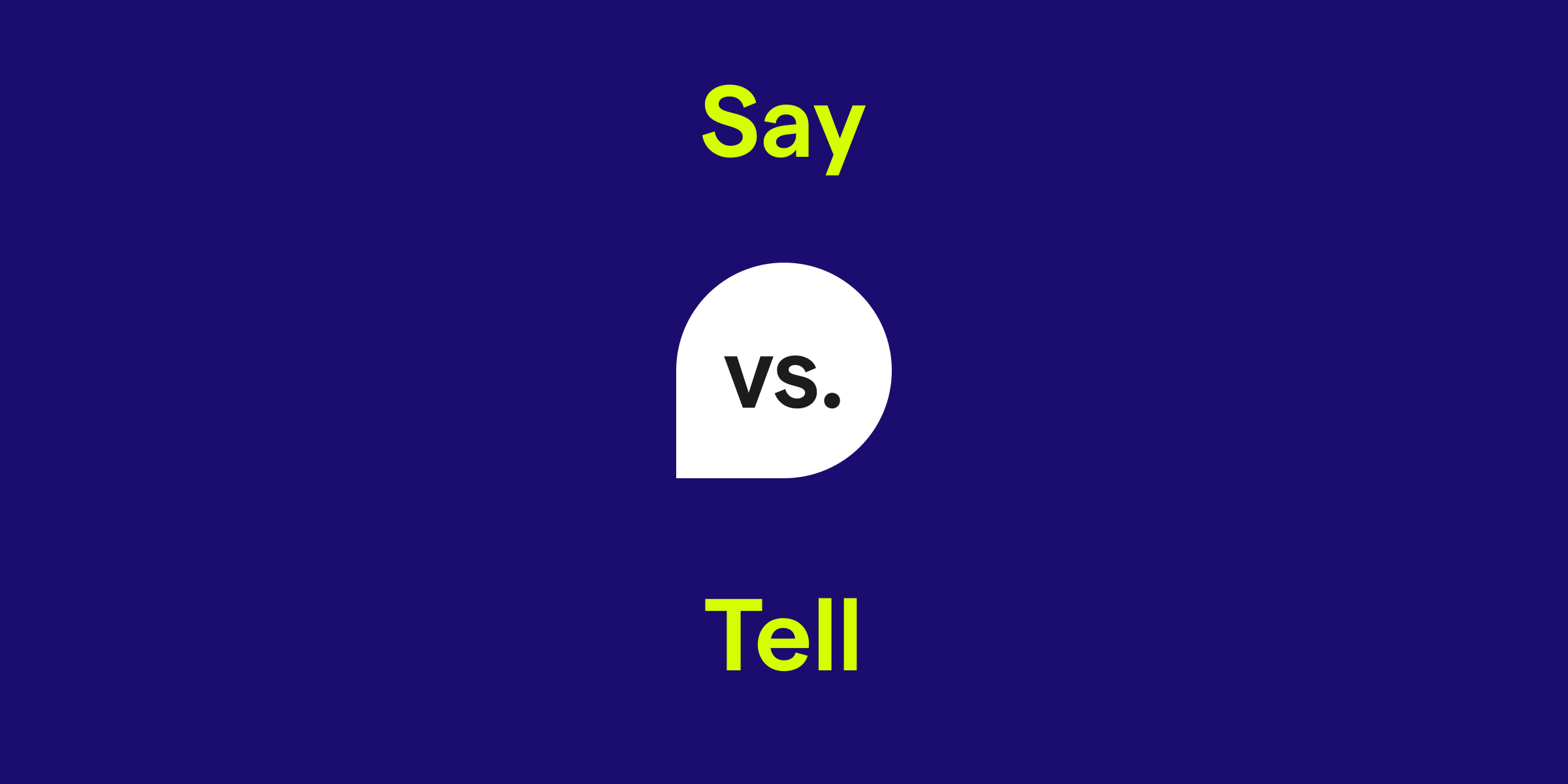Say vs. Tell: What's the Difference?
Understanding when to use say vs. tell is essential for proper English communication. The verb say focuses on the words that someone utters, without necessarily including the listener or object in the sentence. On the other hand, tell often requires an object, implying that someone is communicating information to another person. Say is more about expressing, while tell is more about informing.

How do you use the word say in a sentence?
The verb say is used to quote someone's exact words or to indicate that someone has spoken. It does not necessarily indicate who the words are spoken to and often does not require a direct object. Say can be utilized to report dialogue or convey an utterance in indirect speech.
Examples of say in a sentence
- The teacher often says that practice makes perfect.
- Please say your name and where you come from.
- He said that he would be late because of the traffic.
How do you use the word tell in a sentence?
Tell is used when giving information or instructions to someone directly. Unlike say, tell typically requires an object, which is the person being spoken to. This verb is often followed by an indirect object pronoun or a person's name and sometimes is used with direct speech.
Examples of tell in a sentence
- Can you tell me the way to the nearest post office?
- She told him that dinner would be ready at 6 PM.
- Tell the truth, do you really like my cooking?
Say and tell definitions, parts of speech, and pronunciation
Say definition:
Verb (used with object): to utter or pronounce; to express in words; to state as an opinion or judgment; to assert. Verb (used without object): to speak; to express or report in speech or writing.
Say parts of speech:
Say pronunciation:
Pronunciation: /seɪ/ — rhymes with 'play', 'day', and 'clay'. The pronunciation remains consistent across different English dialects.
Tell definition:
Verb (used with object): to give an account or narrative of; narrate; to inform or instruct orally; to order or direct; to discern or recognize (difference).
Tell parts of speech:
Tell pronunciation:
Pronunciation: /tɛl/ — rhymes with 'well', 'bell', and 'sell'. The pronunciation is mostly uniform in various forms of English.
Verb (used with object): to utter or pronounce; to express in words; to state as an opinion or judgment; to assert. Verb (used without object): to speak; to express or report in speech or writing.
Say parts of speech:
- As a verb: When you actively express something verbally, you say it. For example, 'They say that the early bird catches the worm.'
Say pronunciation:
Pronunciation: /seɪ/ — rhymes with 'play', 'day', and 'clay'. The pronunciation remains consistent across different English dialects.
Tell definition:
Verb (used with object): to give an account or narrative of; narrate; to inform or instruct orally; to order or direct; to discern or recognize (difference).
Tell parts of speech:
- As a verb: When you are instructing or informing someone, you tell them. For example, 'Please tell your friends about this event.'
Tell pronunciation:
Pronunciation: /tɛl/ — rhymes with 'well', 'bell', and 'sell'. The pronunciation is mostly uniform in various forms of English.
Say vs. tell in a nutshell
While both say and tell are similar in that they refer to forms of speech, they are used in different contexts. Say is about uttering or expressing words, often without requiring an object, and is used for direct or indirect speech. Tell, conversely, requires an object and conveys the act of informing or instructing another person directly. Both play vital roles in effective communication and should be chosen carefully based on the situation and the message's intent.
Get AI Writing Assistance Wherever You Type
Make sure your vocabulary is on point and every punctuation mark is in the right place, no matter where you’re working. Grammarly works across more than 1 million websites and apps so you can improve your writing without copying, pasting, or breaking focus.

More Commonly Confused Words
Interest piqued? Pore (not pour) over other commonly confused words to help your writing reach peak (not peek) performance.